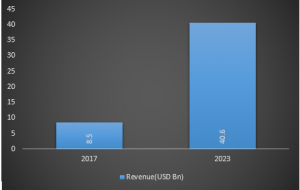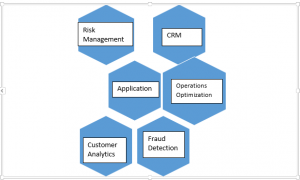
What Is The Future Of Big Data Analytics In The BFSI Industry?
What Is Big Data Analytics?
Big Data Analytics refers to the complex process of examining vast and varied data sets. It includes collecting, organizing, and analyzing large sets of data to discover useful information. It helps to uncover market information such as unknown correlations, market trends, and customer preferences for the organizations to make informed business decisions. It is gathered through abundant sources, including social networks, videos, digital images, sensors, sales records, and others.
Big data analytics is performed through various software and tools applicable for predictive analytics, data mining, text mining, forecasting, and data optimization. This market is growing at a significant rate due to the entrance of many players from the end-user segment and higher demand for e-commerce. It helps industry experts to handle their large amount of data globally. Local businesses, entrepreneurs, high-level corporates rely on big data analytics to drive meaningful insights into their business.
According to an industry expert, the big data analytics market was valued at USD8.5 Bn in 2017 and is expected to reach a value of USD40.6 Bn by 2023 growing at a CAGR of 29.7% during the forecasted years 2018-2023.

Experts say that the
BFSI industry
holds the highest market share among all other end-use verticals of BDA. Inadequate availability of skilled staff, lack of business support, and continuous technical problems with database software are barriers to the adoption of big data analytics.
An executive survey shows that 91.6% of leading businesses are increasing their investment to become more agile and competitive in the market.
As we all know, BFSI is a data-driven industry with a massive volume of data which are generated through ATM transactions, cash transactions, account opening, internet banking, online shopping, and others. The need to deliver customized and customer-centric services and offers are driving the demand for big data analytics in the BFSI industry.
BDA experts help
BFSI professionals
to boost their organizational structure, ensure profitability and sustainable growth within. Adoption of BDA in the BFSI sector has helped the professionals to create enhanced user experience, focus on customer acquisition & retention, and also create omnichannel platforms. This industry is highly regulated with several compliances and is more prone to cases of fraud.
Technology is driving the growth of every industry. Similarly, the deployment of BDA technology has helped to reduce the instances of possible fraud and related scenarios drastically. It is also playing a significant role in income tax departments to unearth the cases of fraudulent IT claims. Other segments which are benefitting from BDA are insurance companies and the banking industry. Insurance companies are investing highly in BDA to deal with false claims to assess and underwrite risks. Now, banks can achieve their business goals efficiently, limit customer attrition, and deliver customer-centric services.
Application of Big Data Analytics in BFSI

Big data analytics tools required in the banking sector comprises of R, SAS, and Python.
With the help of BDA, now banks can understand their customer needs better and find the best way to fix the same. According to McKinsey, 30% of the bank’s works can be automated through technology, and the key lies in big data analytics.